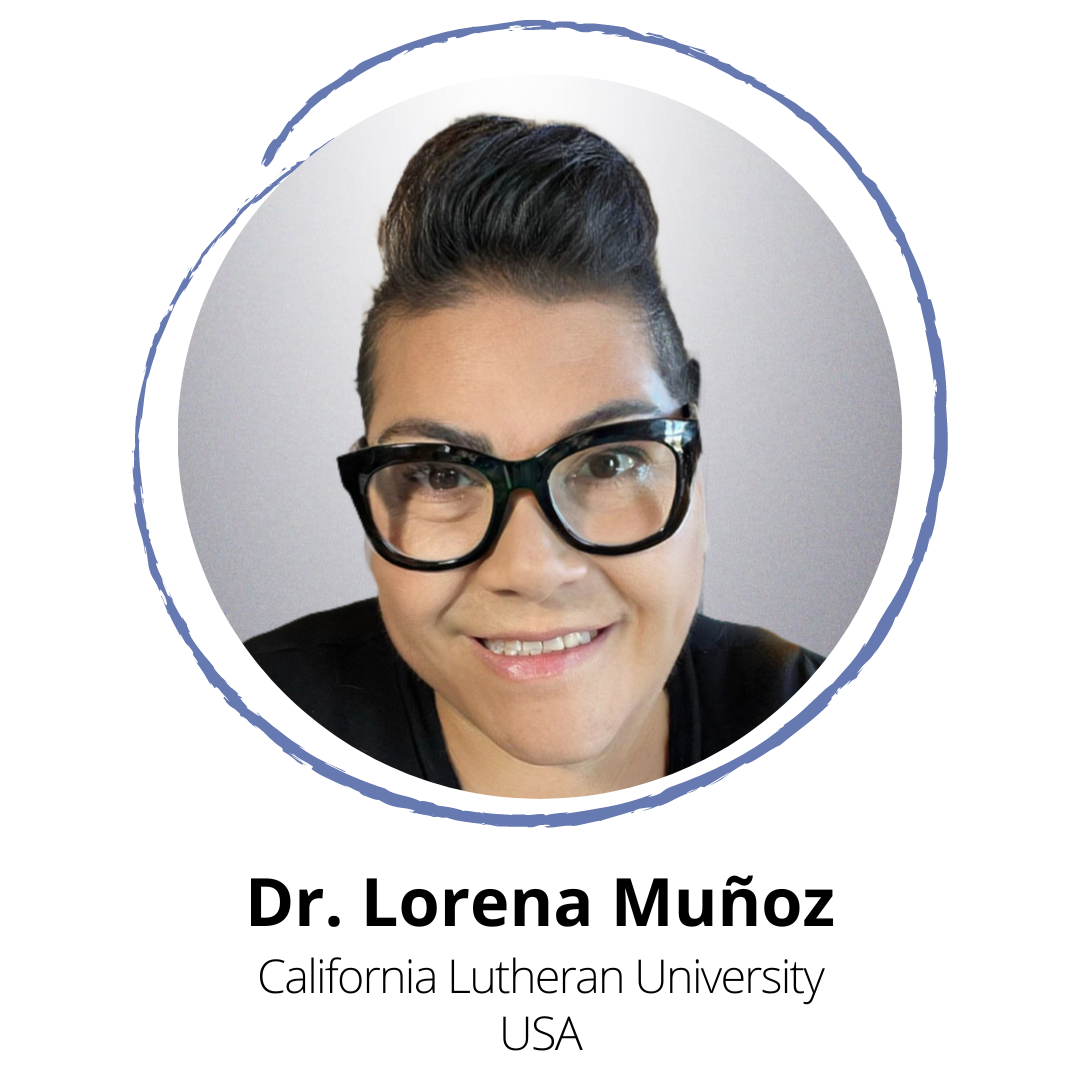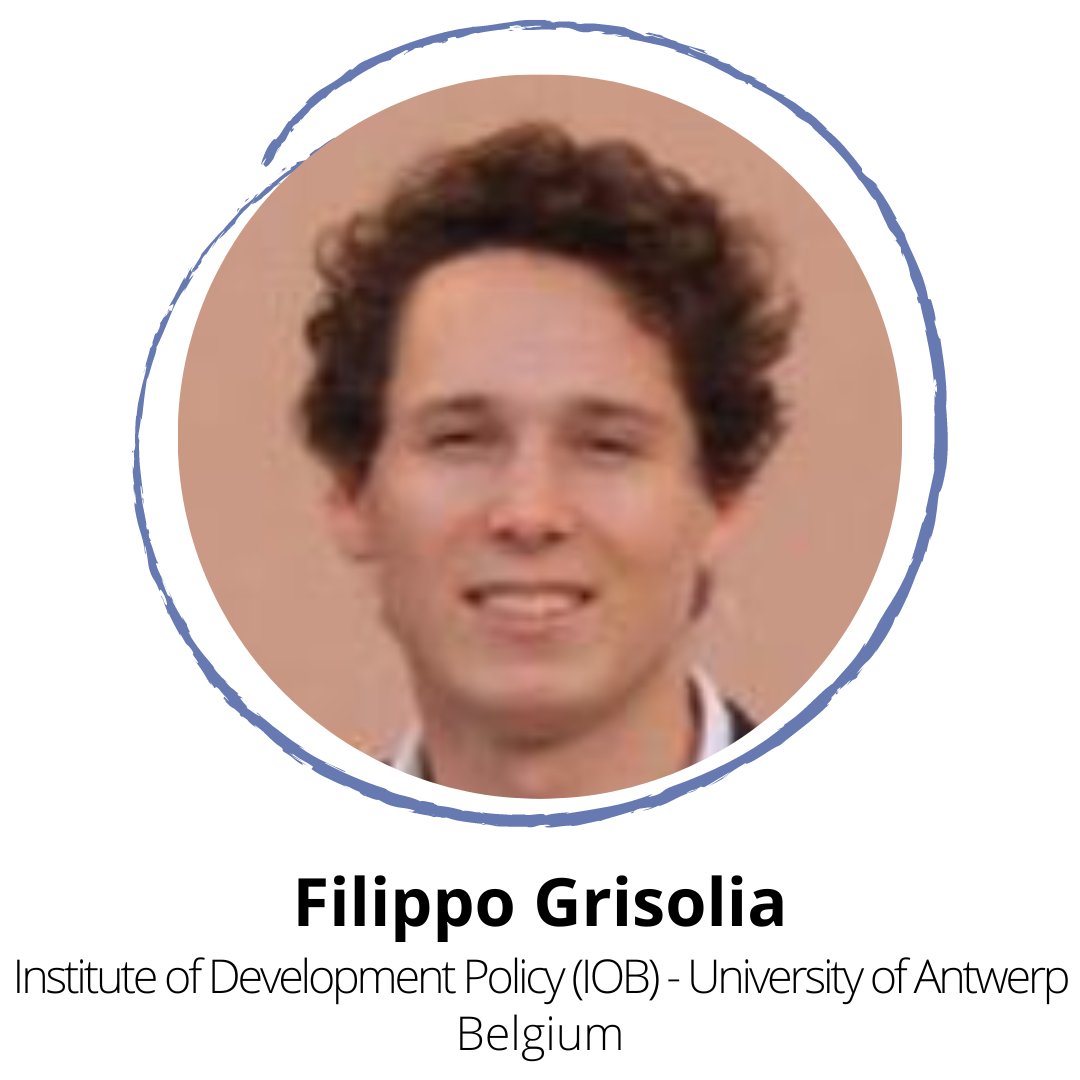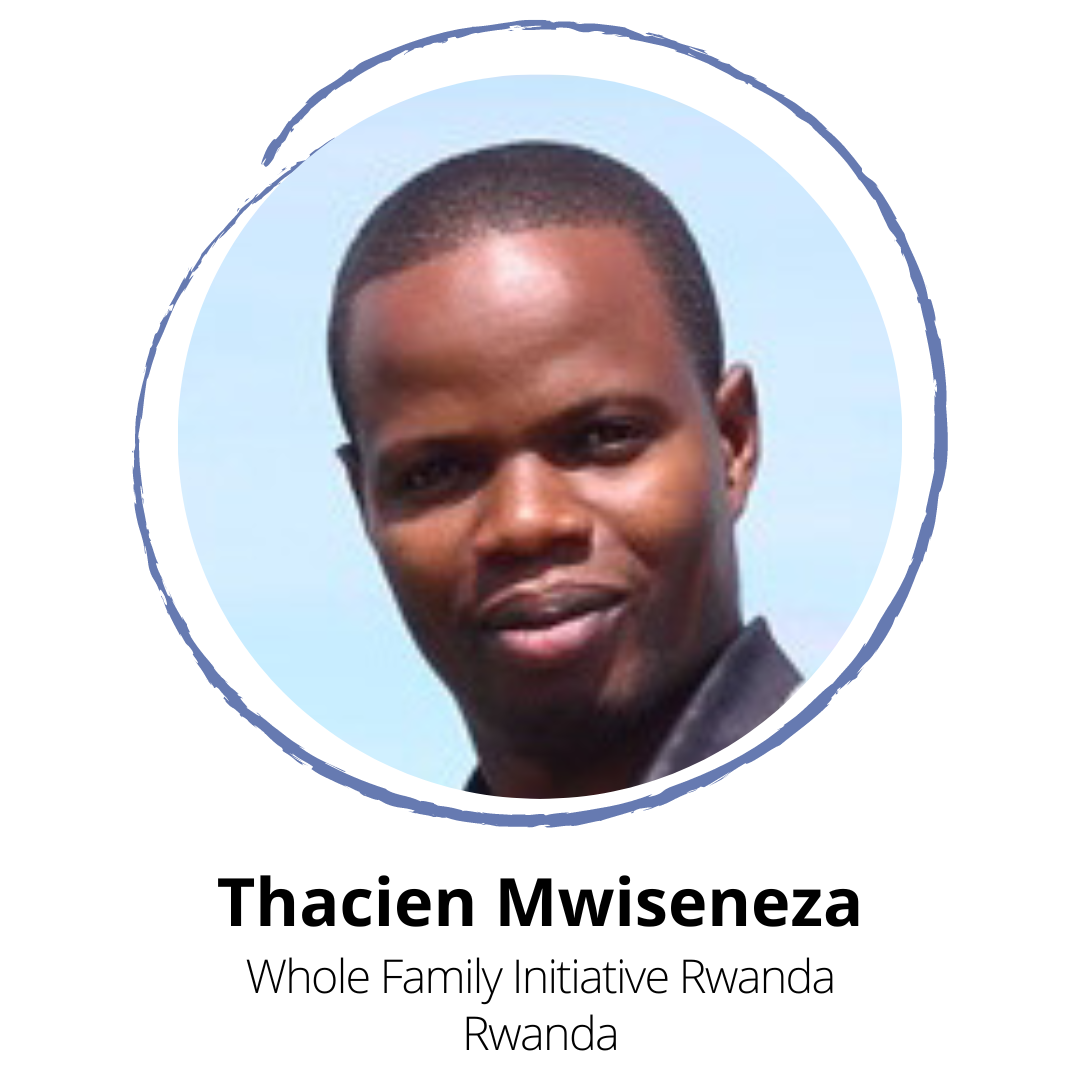14th Poverty and Social Protection Conference [PSPC2024]
9th - 11th of March 2024, Bangkok, Thailand
Radisson Suites Bangkok Sukhumvit
SPEAKERS
Feed Scarborough - “A Journey From Driveway Food Drive To Systemic Poverty Reduction”
A community member found himself in the beginning of the Global Pandemic with prospects of further deepening food insecurity in the community he lives in., he started a food drive to support the most vulnerable. With a deep understanding of food insecurity and the strong belief of "Food is a Human Right", Feed Scarborough was created to tackle Food Insecurity in Scarborough. A three prong approach to tackling poverty in very short three years began to show results. In this presentation, Founder and Executive Director, Suman Roy will talk about the journey with the hope that organizations around the globe will be able to adopt the mind-set and work collaboratively to tackle poverty and hunger.
|
Suman Roy has an extensive career in Private, Public & Not For Profit sector business operations around the City of Toronto, Nationally and Internationally. Suman is on his second term at the Toronto Board of Health. During his time at Toronto Food Policy Council he supported the launch of Toronto Youth Food Policy Council. He was also the Chair of the Board of Director at FoodShare Toronto. Suman was also one of the key consultants who helped write the first Food Strategy for the City of Toronto. He initiated Scarborough Food Security Initiative, to spread the awareness and combat food apartheid with a vision of a Hunger Free Resilient Scarborough. Mr Roy is also the author of an International award winning best-selling book “From Pemmican To Poutine – A Journey Through Canada’s Culinary History”.
feedscarborough.ca |
Invisible Wounds: Zimbabwean Transnational mothering(s), family separations and Xenophobia in South Africa
This study illustrates how motherhood materializes through the often emotionally heavy choices that immigrants make as they strive to take care of variably vulnerable populations often located simultaneously in different locations. In so doing, this project illustrates how mothering decisions takes shape along with women’s strategies for navigating the most intimate relationships across a global stage fraught with economic and political challenges. This research is situated in relationship to transnational feminist thought by highlighting the strategies that women use to navigate motherhood within a larger context that connects their experiences and strategies across places. As such, by rethinking motherhood as part of transnational migration flows, furthers understandings of how invisible wounds and state violence shape the everyday experiences of these women. The material for this analysis is based on oral histories of female Zimbabwean immigrants working in Johannesburg, South Africa as well as workshops with Zimbabwean youth, whose parents are working abroad.
|
Lorena Muñoz is an Associate Professor and Director of Ethnic and Race studies and Interim Chief Diversity Officer at California Lutheran University in Southern California. She is a Queer Latinx Geographer from the Californias whose comparative research focuses on how immigrants working in the informal economy produce Queer Worldmakings. Her current research focuses on how street vendors and domestic workers claim rights while actively navigating and staking claims in their urban futures where they not only exist but also thrive. Her interdisciplinary work has been published in journals such as; Urban & Cultural Geography, MALCS, Feminist Formations, Food and Foodways, AREA and The Professional Geographer. Dr. Muñoz received and MA and PhD in Human Geography from the University of Southern California, in Los Angeles, California, and an MA degree in Geography and Urban Studies from Temple University in Philadelphia.
|
Policy of Encampment: Tracing the Impact on Host Community Sentiments Towards Rohingya Refugees
The coexistence of host communities and Rohingya refugees is a multifaceted interaction, deeply influenced by policy environments. This research explores how encampment policies, specifically in Bangladesh, shape the perceptions of host communities towards Rohingya refugees, and contrasts these findings with perceptions from host communities in Nepal, where encampment rules are less stringent. Such a study can especially provide clarity on the socio-cultural dynamics at play when it comes to social harmony as well as identify sources of tension or discontent at an early stage to prevent social discord. Engaging 500 participants from host communities in each country, we delve into attitudes towards, and interactions with, the Rohingya refugee population.
In Bangladesh, the implementation of stringent encampment policies, confining refugees to specified camp areas, has potentially cultivated distinct social and economic dynamics within adjacent host communities. Utilizing Ordinary Least Squares (OLS) regression, we examine how such policies might influence host perceptions in aspects such as resource distribution, employment dynamics, social cohesion, and security.
In Nepal, where the Rohingya live amongst local communities without stringent encampment rules, we explore how a differing policy approach influences perceptions and social interactions between host communities and refugees. The findings are intended to guide policy-makers and humanitarian agencies in developing strategies and interventions that simultaneously cater to the needs of the refugees and the host communities.
In Bangladesh, the implementation of stringent encampment policies, confining refugees to specified camp areas, has potentially cultivated distinct social and economic dynamics within adjacent host communities. Utilizing Ordinary Least Squares (OLS) regression, we examine how such policies might influence host perceptions in aspects such as resource distribution, employment dynamics, social cohesion, and security.
In Nepal, where the Rohingya live amongst local communities without stringent encampment rules, we explore how a differing policy approach influences perceptions and social interactions between host communities and refugees. The findings are intended to guide policy-makers and humanitarian agencies in developing strategies and interventions that simultaneously cater to the needs of the refugees and the host communities.
|
Dr Minakshi Keeni is an assistant professor at the Laboratory of International Development Economics, Tohoku University, Japan. Her research interests include gender and sexuality studies, family sociology, refugee studies, and social inequality in parts of Asia. Keeni's recent research focuses on gender issues among Rohingya refugees as well as same-sex partnership recognition policies and their impact on society. Before joining Tohoku University, she was a JSPS Postdoctoral Research Fellow. In recognition of her significant contributions to her field, Tohoku University has honored her with the title of 'Prominent Research Fellow'.
|
To Empower or Marginalize: Latinos and the American Catholic Church
This project examines how well the American Catholic Church is adapting and responding to Latinos, the only significant and growing population of Catholics. One primary marker of service is to draw attention to Latino needs, normalizing not only Latino presence in local churches and communities but also actively supporting their ascendance as a growing and dominant population, and sharing training resources and best practices for Latino community inclusion and leadership training. This is possible on the national level thanks to the presence of the United States Conference of Catholic Bishops (USCCB), which is the authoritative body of the American Catholic Church that speaks both to and for the American Catholic Church as a whole. This article examines USCCB news releases and meeting agendas over the past decade in order to determine whether the USCCB uses its national platform to serve, support, and advocate for Latinos in line with their historical reputation as an advocate for the marginalized, and their need to preserve Latinos as congregants during a time of institutional demise.
|
Dr. Kiku Huckle is an assistant professor of Political Science at California Lutheran University. Her research addresses how culture, values, and identity intersect and ultimately affect political beliefs and patterns of engagement, with an emphasis on race, racial resentment, and religious affiliation. Her book project, “Reluctant Evolution: Latino Communities and the American Catholic Church” examines the institutional barriers to the full inclusion of Latinos within the American Catholic Church. Other projects examine the relationship between race, racial resentment, and policy issues such as gun control and immigration, as well as vote choice. Dr. Huckle also uses geo-spatial analysis to understand how community level factors relate to the political integration and socialization of immigrants and citizens.
|
A Comparative Analysis of Multidimensional Child Poverty in Indonesia:
Case Studies of West Sumatera and North Sumatera (Mixed Methods of Quantitative MODA (Multidimensional Overlapping Deprivation Analysis) and Qualitative Analysis)
The research is a dissertation by the author for her master's degree requirement at the University of Birmingham on the concern or issue of child poverty. Numerous studies show that children raised in poor households are vulnerable to its effects, resulting in intergenerational poverty. In Indonesia, statistics indicate that children are disproportionately impoverished. The issue of child poverty in Indonesia is related to the fact that most analyses use the income (or consumption) per capita to determine the poverty status of household members, assuming that their requirements are comparable. In addition, the country's culturally diverse society must be considered, as it can affect the parents' perspective and parenting and the daily multidimensionality children encounter. One of the cultural values is the matriarchal and patriarchal norms. This study compares the multidimensional approach to child poverty and the social challenge in patriarchal North Sumatra and matriarchal West Sumatra by utilizing the mixed-method research of quantitative MODA and qualitative research analysis.
|
Sherly Aktivani is a civil servant working at Statistics Indonesia. She is a data analyst and statistician who just graduated from the University of Birmingham for her Master Degree majoring in Poverty, Inequality, & Development. This presentation is her dissertation from the university as the requirement for her degree, as well as her interest in poverty and children's issues.
|
Countering Violence Against Girls and Adolescents through Social Protection in Central America
Social Protection programs can play a significant role in preventing and addressing gender-based violence in Latin America by targeting its root causes and providing support to survivors. They are some ways in which Social Protection can contribute to preventing gender-based violence, these can be from economic empowerment, to healthcare services and educations strategies, among others. I invite you to join me in this conversation about how social protection strategies can help countering violence against girls and adolescents in crisis regions, like Central America, because experience is telling us, that social protection programs and strategies can play a significant role for gender equity and risk mitigation in periods of political, humanitarian or war crises.
|
Franco - Nicaraguan sociologist, Specialized in Gender and Civil Society formerly based in Myanmar; with significant experience working in capacity building programs, mainly with CSOs in the sectors of democracy, advocacy and human rights. Large experience in the provision of technical advisory and support to diverse local organizations that includes women’s organizations, media and electoral observation organizations in Central America. Part of ongoing initiatives with different human rights Coalitions, documenting human rights violations, with the goal of achieving transitional justice in Nicaragua, Central America.
|
Diverse Defendants, Divergent Perceptions: A Study of Juror Decision-Making in the United States
The purpose of this study was to examine how jurors’ decisions and perceptions were impacted by a defendant’s ethnicity (White Canadian / White Russian / Mexican / Chinese), immigration status (documented / undocumented), and socioeconomic status (low / high) in the United States. Based on a social psychological framework, participants were asked to read the case file of a defendant that included what he was charged with, his demographic information, and evidence from the prosecution and defense. They were given the jury instructions that were typical in the state of California and then asked questions related to verdict, sentencing, and perceptions of the defendant. There were no significant differences with the verdict and sentencing, but there were differences in the perceptions of the defendant. Participants had more positive perceptions towards the defendant from a low SES. The Mexican defendant from a low SES was perceived to be guiltier than the other defendants. The undocumented White Russian, rather than the White Canadian, defendant was seen as having committed a similar crime in the past. Participants were more confident in their guilt decision when he was White Russian from a low SES.
|
Amanda ElBassiouny received her MS and Ph.D. in Social Psychology from Howard University. She is a faculty member in the Department of Psychology at California Lutheran University, where she teaches a variety of social psychology, statistics, and research methods courses. Her research focuses on the stereotyping, prejudice, and discrimination a person experiences based on the intersectionality of their identities, including race/ethnicity, religion, gender, and mental health status, particularly in the criminal justice system.
|
Failed Social Welfare System in Japan: Causes, Consequences, and Counterplans
The world’s fourth-largest economy, Japan, has puzzlingly failed to develop an effective and extensive social welfare system for many decades, leaving numerous people who live below the poverty line unrelieved. The nation’s less-than-successful system is a complex phenomenon created and compounded by legal, economic, and social factors. While many studies have been made on the welfare scheme’s arrangements and impacts, the question of what role socio-psychological factors have played in shaping and sustaining it still needs to be answered. On the other hand, universal basic income (UBI), proposed as an alternative to the scheme, has been recently debated in the country. However, both proponents and critics tend to focus on the issue of sources of revenue, disregarding the public’s perception of benefit recipients. To fill these gaps in the literature, this talk discusses the unsuccessful welfare-providing policy and practice in Japan, with particular reference to their socio-psychological backdrop, namely the stigmatization of benefit recipients. It also sketches the current mechanism’s problematic consequences, including the low average payout rate, significant disparities in the rate between jurisdictions, and gendered poverty. Then, two alternatives to the existing framework, negative income tax and UBI, are compared and assessed in the context of Japanese society.
|
Makoto Usami, LL.D., LL.M., is Vice Dean and Professor of Philosophy and Public Policy in the Graduate School of Global Environmental Studies, Kyoto University and a visiting professor at the Kochi University of Technology. He was formerly a visiting scholar at Harvard University and a professor at the Tokyo Institute of Technology. He has served as the President of the International Association for Philosophy of Law and Social Philosophy, Japan (IVRJ), Vice President of the Public Policy Studies Association, Japan (PPSAJ), and editor-in-chief or associate editor for several international and Japanese journals. As a legal and political philosopher, Usami has worked on distributive justice as well as its applied topics, including climate justice, global justice, and intergenerational justice, for many years. He is the author of four books and some eighty journal articles and book chapters while editing eight books and a special issue of an international journal. His recent publications include a co-edited book, Governance for a Sustainable Future: The State of the Art in Japan (Springer, 2023) and “Digitization, Unemployment, and Distributive Justice,” in Christoph Lütge et al. (eds.), Business Ethics and Digitization (Springer, 2022).
https://www.envpolicy.ges.kyoto-u.ac.jp/en |
Facing climate change together? The role of collective variables in mediating CT effects on climate adaptation
Surprisingly little (theoretical and) empirical literature exists on how cash transfer (CT) programs affect climate resilience and adaptation, notwithstanding the severity of the ongoing climate emergence, and the overlap in aims between social protection and climate policy. The existing sources claim that CTs can improve climate resilience by positively impacting its several dimensions, among which the social component plays a key role. In this context, the paper analyses, through a quasi-experimental differencein- differences approach, the midline effects of a (universal) unconditional cash transfer conducted in rural Uganda, on adaptation to climate change and collective-level outcomes – operationalized as social capital, agency and collective action, and also underexplored. The main finding was that the program did spur the adoption of (both preventive and absorptive) coping mechanisms against climate shocks. Nevertheless, interestingly, not only ‘beneficial’ strategies (such as savings and credit) but also ‘mal-adaptation’ practices – like selling productive assets and withdrawing children from school – were increasingly employed by recipients. Moreover, the study confirmed that CTs are able to yield positive effects on collective variables (even if agency was negatively impacted, in this case). Finally, through Causal Mediation Analysis, it was established that the rise in the utilization of beneficial coping mechanisms was in fact mediated and driven by the CT-led improvement in collective-level outcomes, whereas the latter did not significantly influence changes in the usage of adverse strategies.
|
Filippo Grisolia is a doctoral candidate at the Institute of Development Policy, University of Antwerp. He received a bachelor’s degree and a master’s degree in business and economics from Bocconi University, and a double master’s degree in public policy (with a specialization in social protection policy) from Maastricht University and the United Nations University-MERIT. His main research interests lie around social assistance and its effects (on social capital, climate resilience and productive outcomes, amongst others), with a focus on cash transfers and basic income projects.
https://filippogrisolia.academicwebsite.com/ |
The Kean University/Whole Family Initiative-Rwanda Partnership:
Exploring research-based 2 Generation Approaches to reduce the number of families in poverty through initiatives that simultaneously promote the holistic development, education and economic stability
The Presentation will focus on the research-based 2 Generation Approaches to reduce the number of families in poverty through initiatives. that simultaneously promote the holistic development, education and economic stability in both US and Rwanda.
|
Thacien Mwiseneza is the CEO and founder of Whole Family Initiative Rwanda. Thacien is an education expert with more than 15 years of experience in designing education programmes in Rwanda. He supported the development of instruction materials, teacher continuous professional development programs, coaching, and mentoring in pre-service and in-service education systems. Thacien worked for international Non-Governmental Organizations including Chemonics International, Right to Play International, FHI 360. His hold a master’s degree in education and bachelor’s degree in primary education.
|
Conference
|
Tomorrow People
Tomorrow People Organization
Dusana Vukasovica 73 11 000 Belgrade Serbia Tel. +381 62 680 683 www.tomorrowpeople.org |
Copyright Tomorrow People Organization © 2002-2024, All rights reserved.










